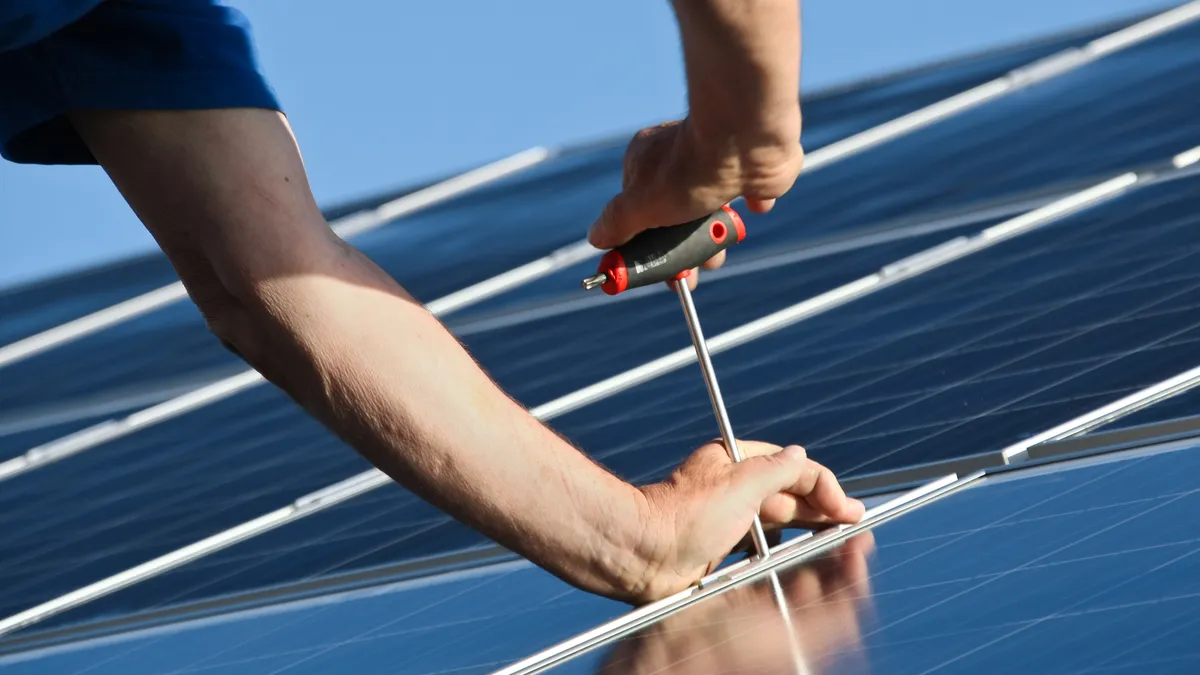Next month regulators in Wisconsin are expected to weigh in on a rate design that has fixated and galvanized the state's renewable energy advocates. A proposal by We Energies to raise customers' monthly flat fees is being painted by environmentalists as an outright attack on customer generation. The utility sees it differently, of course: In its view, not only are solar systems being overcompensated, but a lack of accurate price signals could be doing long-term damage to the solar industry.
We Energies is proposing to boost its monthly fee by about 75%, from $9 up to $16, along a 3% drop in energy rates. But critics say the utility also wants to add extra fees for distributed generation, and to restrict net metering and distributed generation finance options.
“That would effectively demolish the economic appeal of rooftop solar. It would just take it away,” said Michael Vickerman, the program and policy director at RENEW Wisconsin, which advocates for renewable energy in the state. According to the group's analysis, We Energies' proposal would be the third-highest fixed monthly charge in the Midwest.
An attack on rooftop solar?
RENEW said its analysis finds the new structure would take a number of steps aimed stopping rooftop solar installation. The plan would require existing and future residential solar generators to pay a capacity demand charge of $3.794 per kilowatt every month and would restructure terms of service to credit more kilowatt hours at lower rates. The proposal would also establish an additional charge for the second meter and prohibit third party financing and leasing options for new systems.
“No other utility is trying as hard as We Energies is to deprive small customers of the option to self-generate with solar,” Vickerman said.
The utility has fired back, setting up a website titled “Path to Renewable Energy Fairness” that explains it is proposing customers who generate their own power pay a standby charge for having utility energy on demand, and help pay for their use of the electric grid and receive a comparable market rate when selling excess power.
“We disagree that the future of solar power will be harmed by these proposals and believe that if the subsidies from our other customers continue, the result will be short-term profits for the solar industry at the expense of our other customers and at the expense of improvements to solar technology,” said utility spokesman Brian Manthey.
We Energies submitted testimony to the Public Service Commission of Wisconsin by Ashley Brown, executive director of the Harvard Electric Policy Group at the John F. Kennedy School of Government at Harvard University. According to Brown, rate proposals that subsidize the solar industry are yielding only short-term benefits and remove longer-term incentives to improve and innovate.
“In the short term, they constitute a wealth transfer from WE’s non-solar customers to the solar industry. In the long-term, however, they are actually harmful to solar energy,” Brown testified.
Net metering, Brown said, “provides absolutely no incentives to improve the performance of a generating resource that, among renewables, already ranks last in efficiency and in cost effectiveness for reducing carbon emissions. In effect, the solar industry is putting its short-term profits ahead of the long-term value of solar energy.”
RENEW's path forward
The utility has also proposed a 10-year grandfathering period for customers who already have installed renewable generation.
"Simply put, in addition to honoring contracts already in place, customers not under contract will continue to enjoy the same customer-owned generation rate provisions currently in place, for 10 more years," We Energies' Manthey said. "That includes customers that are receiving as much as five times the current wholesale price of energy."
Analysis by RENEW estimated the proposal would reduce a customer’s return from a new solar system by 35% and cut savings from an existing system by 47%.
The group has been vocal in its attack on We Energies' proposal, but Vickerman said its expectations are more modest. The group would like regulators to reject all of We Energies' customer generation proposals and instead open a generic proceeding to establish costs and benefits of distributed generation. But, according to Vickerman, that's not likely to happen.
“I can see the commission accepting some of the changes, but approving [We Energies'] proposed capacity demand charge would be a heavy lift,” he wrote in an email. “The commission and [We Energies] know fully well that approval of that provision would trigger an immediate legal challenge, as would approval of the prohibition on third party-owned PV net metered systems.”
“That said," he continued, "there is some likelihood that the commission will go along with the capacity demand charge proposal, and give We Energies the opportunity to decide whether it's worth litigating next year or not.”






















